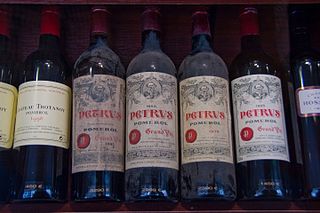 W
WIn law, fraud is intentional deception to secure unfair or unlawful gain, or to deprive a victim of a legal right. Fraud can violate civil law or criminal law, or it may cause no loss of money, property, or legal right but still be an element of another civil or criminal wrong. The purpose of fraud may be monetary gain or other benefits, for example by obtaining a passport, travel document, or driver's license, or mortgage fraud, where the perpetrator may attempt to qualify for a mortgage by way of false statements.
 W
WAn advance-fee scam is a form of fraud and one of the most common types of confidence tricks. The scam typically involves promising the victim a significant share of a large sum of money, in return for a small up-front payment, which the fraudster claims will be used to obtain the large sum. If a victim makes the payment, the fraudster either invents a series of further fees for the victim or simply disappears.
 W
WThe Bouvier Affair was a number of international lawsuits that started in 2015, and subsequent events. The lawsuits allege that Swiss art shipper and dealer Yves Bouvier defrauded his clients by misrepresenting the original cost of art works and subsequently overcharging them. The affair has played out in courts in Monaco, Switzerland, France, the US, Hong Kong and Singapore.
 W
WA brass plate company or brass plate trust is a legally constituted company whose only tangible existence in its jurisdiction of incorporation is the nameplate attached to the wall outside its registered office.
 W
WClothing scam companies are companies or gangs that purport to be collecting second-hand clothes for charities or to be working for charitable causes, when they are in fact working for themselves, selling the clothes overseas and giving little if anything to charitable causes. They are a particular problem in the United Kingdom, where they rely on people's awareness of proper charities established practise of collecting used clothes for good causes. These companies cause major problems for established charities in terms of lost donations and making the public distrustful of all clothes collectors.
 W
WA confidence trick is an attempt to defraud a person or group after first gaining their trust. Confidence tricks exploit victims using their credulity, naïveté, compassion, vanity, irresponsibility, and greed. Researchers have defined confidence tricks as "a distinctive species of fraudulent conduct ... intending to further voluntary exchanges that are not mutually beneficial", as they "benefit con operators at the expense of their victims ".
 W
WA copyfraud is a false copyright claim by an individual or institution with respect to content that is in the public domain. Such claims are wrongful, at least under U.S. and Australian copyright law, because material that is not copyrighted is free for all to use, modify and reproduce. Copyfraud also includes overreaching claims by publishers, museums and others, as where a legitimate copyright owner knowingly, or with constructive knowledge, claims rights beyond what the law allows.
 W
WHeraldic fraud may either mean, to falsely claim the right to a coat of arms to which a person does not have the right, or to falsely claim someone else has that right and thereby selling heraldic art to him to which he has no right. Both can be seen as a kind of fraud and an infringement on intellectual property rights.
 W
WThe Hitler Diaries were a series of sixty volumes of journals purportedly written by Adolf Hitler, but forged by Konrad Kujau between 1981 and 1983. The diaries were purchased in 1983 for 9.3 million Deutsche Marks by the West German news magazine Stern, which sold serialisation rights to several news organisations. One of the publications involved was The Sunday Times, who asked their independent director, the historian Hugh Trevor-Roper, to authenticate the diaries; he did so, pronouncing them genuine. At the press conference to announce the publication, Trevor-Roper announced that on reflection he had changed his mind, and other historians also raised questions concerning their validity. Rigorous forensic analysis, which had not been performed previously, quickly confirmed that the diaries were fakes.
 W
WA hoax is a falsehood deliberately fabricated to masquerade as the truth. It is distinguishable from errors in observation or judgment, rumors, urban legends, pseudosciences, and April Fools' Day events that are passed along in good faith by believers or as jokes.
 W
WIdentity theft occurs when someone uses another person's personal identifying information, like their name, identifying number, or credit card number, without their permission, to commit fraud or other crimes. The term identity theft was coined in 1964. Since that time, the definition of identity theft has been statutorily defined throughout both the U.K. and the United States as the theft of personally identifiable information. Identity theft deliberately uses someone else's identity as a method to gain financial advantages or obtain credit and other benefits, and perhaps to cause other person's disadvantages or loss. The person whose identity has been stolen may suffer adverse consequences, especially if they are falsely held responsible for the perpetrator's actions. Personally identifiable information generally includes a person's name, date of birth, social security number, driver's license number, bank account or credit card numbers, PINs, electronic signatures, fingerprints, passwords, or any other information that can be used to access a person's financial resources.
 W
WA Lebanese loop is a device used to commit fraud and identity theft by exploiting automated teller machines (ATMs). In its simplest form, it is a strip or sleeve of metal or plastic which blocks the ATM's card slot, causing any inserted card to be apparently retained by the machine, allowing it to be retrieved by the fraudster when the card holder leaves.
 W
WLip sync or lip synch is a technical term for matching a speaking or singing person's lip movements with sung or spoken vocals.
 W
WThis is a list of controversial elections arranged by continent and date.
 W
WMelanie's Marvelous Measles is a self-published children's book written by Australian author and anti-vaccine activist Stephanie Messenger. Through its story, the book claims, contrary to scientific data, that contracting measles is beneficial to health, and that vaccines are ineffective.
 W
WMissing trader fraud involves the theft of Value Added Tax (VAT) from a government by fraudsters who exploit VAT rules, most commonly the European Union VAT rules which provide that the movement of goods between member states is VAT-free. There are different variations of the fraud but they generally involve a trader charging VAT on the sale of goods and absconding with the VAT. The term "missing trader" is used because the fraudster has gone missing with the VAT.
 W
WMobile tower rental business offers are a new form of mass marketing fraud in India. These frauds are unique to the Indian subcontinent. Mass-marketing fraud is defined as fraud committed via mass communication media using the telephone, mail, and the Internet.
 W
WAn advance-fee scam is a form of fraud and one of the most common types of confidence tricks. The scam typically involves promising the victim a significant share of a large sum of money, in return for a small up-front payment, which the fraudster claims will be used to obtain the large sum. If a victim makes the payment, the fraudster either invents a series of further fees for the victim or simply disappears.
 W
WPetite Mustique is a small island in the Caribbean nation of St. Vincent and the Grenadines. About 100 acres (40 ha) in size, Petite Mustique is located 2 miles (3.2 km) northeast of Savan and 1 mile (1.6 km) south of the larger island of Mustique. Petite Mustique is uninhabited and undeveloped. Sedimentary in nature, the island is hilly, reaching 340 ft (100 m) high, and has no easy landings or large beaches. Locally, the name of the island is pronounced "petty."
 W
WPhishing is the fraudulent attempt to obtain sensitive information or data, such as usernames, passwords and credit card details or other sensitive details, by impersonating oneself as a trustworthy entity in a digital communication. Typically carried out by email spoofing, instant messaging, and text messaging, phishing often directs users to enter personal information at a fake website which matches the look and feel of the legitimate site.
 W
WA romance scam is a confidence trick involving feigning romantic intentions towards a victim, gaining their affection, and then using that goodwill to get the victim to send money to the scammer under false pretenses or to commit fraud against the victim. Fraudulent acts may involve access to the victim's money, bank accounts, credit cards, passports, e-mail accounts, or national identification numbers; or forcing the victims to commit financial fraud on their behalf.
 W
WThe Serious Fraud Investigation Office (SFIO) is a statutory corporate fraud investigating agency in India. Initially, it was set up by a resolution adopted by the Government of India on 2 July 2003 and carried out investigations within the existing legal framework under section 235 to 247 of the erstwhile Companies Act, 1956. Later, Section 211 of the Companies Act, 2013, accorded the statutory status to the Serious Fraud Investigation Office (SFIO). It is under the jurisdiction of the Ministry of Corporate Affairs, Government of India & primarily supervised by officers from Indian Administrative Service, Indian Police Service,Indian Corporate Law Service, Indian Revenue Service and other Central Services. The organisation has experts from various financial sector domains. The SFIO is mandated to conduct Multi-disciplinary investigations of major corporate frauds.
 W
WA sham marriage or fake marriage is a marriage of convenience entered into without intending to create a real marital relationship. This is usually for the purpose of gaining an advantage from the marriage.
 W
WA shell corporation is a company or corporation that exists only on paper and has no office and no employees, but may have a bank account or may hold passive investments or be the registered owner of assets, such as intellectual property, or ships. Shell companies may be registered to the address of a company that provides a service setting up shell companies, and which may act as the agent for receipt of legal correspondence. The company may serve as a vehicle for business transactions without itself having any significant assets or operations. Sometimes, shell companies are used for tax evasion, tax avoidance, and money laundering, or to achieve a specific goal such as anonymity. Anonymity may be sought to shield personal assets from others, such as a spouse when a marriage is breaking down, from creditors, from government authorities, besides others.
 W
WSingularis Holdings Limited v Daiwa Capital Markets Europe Limited [2019] UKSC 50 is a judicial decision of Supreme Court of the United Kingdom relating to the duties owed by a bank where a person acting on behalf of a corporate customer of the bank directs the bank to transfer money out of the company's account as part of a fraudulent scheme.
 W
WThe statute of frauds refers to the requirement that certain kinds of contracts be memorialized in writing, signed by the party to be charged, with sufficient content to evidence the contract.
 W
WWelfare fraud is the act of illegally using state welfare systems by knowingly withholding or giving information to obtain more funds than would otherwise be allocated.
 W
WWine fraud relates to the commercial aspects of wine. The most prevalent type of fraud is one where wines are adulterated, usually with the addition of cheaper products and sometimes with harmful chemicals and sweeteners.